Tony Eldridge's Blog, page 18
May 14, 2011
Resource Of The Week: MobiPocket Ebook Creator
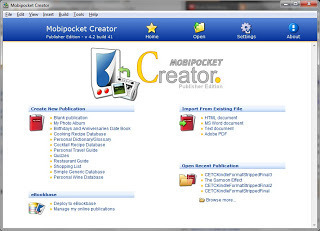 Today's resource of the week is the MobiPocket Ebook Creator. I have used this program to convert my MS Word document of The Samson Effect and Conducting Effective Twitter Contests into the document I uploaded to Kindle's Direct Publishing (KDP) platform. It handled the screenshots that were in the Twitter contest book well, created the linkable table of contents with no problems and it allowed me to upload the book cover with no problems.
Today's resource of the week is the MobiPocket Ebook Creator. I have used this program to convert my MS Word document of The Samson Effect and Conducting Effective Twitter Contests into the document I uploaded to Kindle's Direct Publishing (KDP) platform. It handled the screenshots that were in the Twitter contest book well, created the linkable table of contents with no problems and it allowed me to upload the book cover with no problems.MobiPocket Ebook Creator lets you import from an HTML document, MS Word, a text document and a PDF document. While I can also recommend other e-book creation tools, this is one that you should definitively check out. It's free and it's a powerful little tool.
Hat tip to CJs Easy As Pie Kindle Tutorials for not only turning me onto the MobiPocket Ebook Creator, but for also creating the tutorial I used when I published my own Kindle titles.
Last 4 Resources Of The Week
YouTube's Creator's Corner
Wikimedia Commons
Twitter Bookmarklet III
Kontactr
-------- Tony Eldridge is the author of The Samson Effect , an action/adventure novel that Clive Cussler calls a "first rate thriller brimming with intrigue and adventure." He is also the author of the Twitter marketing book, Conducting Effective Twitter Contests .








Published on May 14, 2011 04:00
May 12, 2011
How to Use Tags to Help Sell Books or E-Books on Amazon by Nick Daws
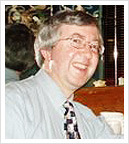 Today, I'm thrilled to introduce you to our guest author, Nick Daws. Nick is a prolific writer with over 100 books to his credit and numerous other writing pieces. Today, Nick will be sharing his experience on how Amazon tags can help you sell your books.
Today, I'm thrilled to introduce you to our guest author, Nick Daws. Nick is a prolific writer with over 100 books to his credit and numerous other writing pieces. Today, Nick will be sharing his experience on how Amazon tags can help you sell your books. How to Use Tags to Help Sell Books or E-Books on Amazon
by Nick Daws
As you may know, tagging is one of the many methods offered by Amazon to help their customers find further titles they would enjoy.
Tags are words and phrases any Amazon customer can enter that describe a book. They can then be used by potential buyers to seek out similar books to the one they are looking at, or books on a particular theme or subject.
All you need to tag any book or e-book on Amazon is an Amazon account (you also need to have made at least one purchase at the store in question). As an example, below are the tags showing on the Amazon.com sales page for Stephen King's novel 'Under The Dome'. The number beside each tag indicates how many people have applied that particular tag to it.
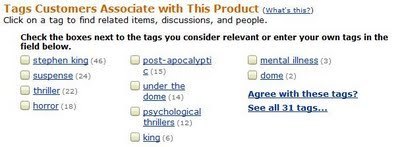
Amazon tags for Under the Dome by Stephen King
If you click on any tag - 'thriller' in the list above, for example - you will be shown a list of books that have also been given that tag. The more times any particular tag has been applied, the further up the list that book will appear.
Tags are also used by Amazon to determine what titles appear in search results and 'You might also like...' recommendations, and possibly for other marketing purposes as well.
It follows that getting your book tagged can be highly beneficial. Amazon has no objection to you, as the author, tagging your own book, as doing this helps people find your title and gives them a better idea what it is about. Here are a few tips for getting the most from tagging...
* Use your own name as a tag in all your books and e-books. This will make it easier for fans of your work to find other titles you have written.
* Use specific terms that relate to your book. If it's a history of American motoring, for example, you could use tags such as Ford and Cadillac.
* With a novel, use the place where it is set as one of your tags. Many people like to read novels set in their home town or somewhere they know well. If you have multiple settings, naturally, use all of them.
* But avoid using very general terms such as 'book' or 'e-book' as tags. These won't attract people interested in your subject area, and are really a wasted opportunity.
* Sneaky tip: Use tags that have been applied to popular titles similar to yours. If you think your novel would appeal to fans of Stieg Larsson's books, for example, there is nothing to prevent you applying the tag 'Stieg Larsson' to it. Mainstream publishers do this all the time, proclaiming on their book covers that this title will appeal to fans of some other well-known author - so you will be in good company.
* Even sneakier tip: If you want to poach traffic from a popular author but can't see any tags that would be relevant to your title on their book's sales page, create a new tag - preferably something eye-catching - and apply this to both your book and that of the popular author.
Once you've applied your own tags, it will help a lot if you can get other people to add them as well. In particular, as mentioned above, the more times a particular tag is applied to a book, the higher up it will appear in search results for that term - so it's worth trying for as many tags as possible.
You can ask friends, relatives and fellow authors for their help, of course - and don't forget to tell them any particular tags you would like applied.
In addition, there are various co-operative tagging services, where authors will tag your book in exchange for you tagging theirs. One of the best - which I have used myself - is Tag My Book on Amazon. This has separate sections for Amazon.com and Amazon.co.uk - so if your title is on sale at both the US and UK sites, you can get it tagged at each one.
Happy tagging!
--------
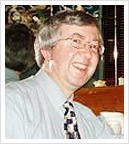 Nick Daws is a professional freelance writer, editor and writing teacher in the UK. He is the author of over 100 non-fiction books, as well as innumerable published articles, short stories, distance-learning courses, and more. His new guide to writing profitable e-books for the Amazon Kindle, titled Kindle Kash, will be published later this month by The WCCL Network. For more information, and to sign-up for advance notification and unique special offers, visit Nick's homepage at www.nickdaws.co.uk/kkash.htm. And don't forget to check out also his freelance writing blog at www.mywritingblog.com!
Nick Daws is a professional freelance writer, editor and writing teacher in the UK. He is the author of over 100 non-fiction books, as well as innumerable published articles, short stories, distance-learning courses, and more. His new guide to writing profitable e-books for the Amazon Kindle, titled Kindle Kash, will be published later this month by The WCCL Network. For more information, and to sign-up for advance notification and unique special offers, visit Nick's homepage at www.nickdaws.co.uk/kkash.htm. And don't forget to check out also his freelance writing blog at www.mywritingblog.com!Related Posts
Kindle Marketing Lessons Using The "Before You Go" Screen by Steven Lewis
Tips For Publishing On The Kindle By Joanna Penn
Best Selling Kindle Author Karen McQuestion Gives E-Book Advice To Authors
Review: How to Sell More Books on Amazon by Dana Lynn Smith
Searching For Book Ideas And Inspiration On Amazon.com By Roger C. Parker
-------- Tony Eldridge is the author of The Samson Effect , an action/adventure novel that Clive Cussler calls a "first rate thriller brimming with intrigue and adventure." He is also the author of the Twitter marketing book, Conducting Effective Twitter Contests .








Published on May 12, 2011 04:00
May 11, 2011
7 Weekly Book Marketing Goals You Can Adopt Today
 When you're an author, it can become overwhelming when you realize you are responsible for marketing your book. You read a lot of blogs, books, and newsletters giving you advice to do this and do that; but the choices can be confusing. Knowing what to do and how to do it can be two different things.
When you're an author, it can become overwhelming when you realize you are responsible for marketing your book. You read a lot of blogs, books, and newsletters giving you advice to do this and do that; but the choices can be confusing. Knowing what to do and how to do it can be two different things. As you develop your book marketing plan, I invite you to consider the following weekly goals to incorporate into your routine. They are simple activities but they will help you expand your platform, extend the visibility of your book, deepen your network, and keep you constantly moving forward with your plan.
These are by no means all the things you should be doing, but they will help you get started with productive activities.
1. Have a guest on your blog or be a guest on another blog- To help you get in front of new people, there are few things easier or more effective than having a guest on your blog or by writing a post for someone else. Each week, look for one way you can expand your visibility through guest blogging.
2. Comment on 10 blog post- Start off by committing to comment on two posts per day. This is a great way to get your name out there while building relationships and establishing your own expertise.
3. Subscribe to 1 new blog- A real danger when trying to market your book is remaining stagnant. If you make it your weekly goal to find a new blog to subscribe to, you'll help ensure that you are constantly learning new things. But the strength of this goal is in the research process itself. Just by looking for new blogs you want to subscribe to, you'll expand your knowledge base.
4. Implement 1 SEO strategy into your blog or website- Search Engine Optimization, or SEO, is important to make sure you are giving your blog or website the best chances at feeding the search engines. This is important to make sure searchers find your site when they are using keywords. You don't have to be a technical expert to implement simple SEO techniques and a quick visit to Google, YouTube, or even the search feature on my blog will give you easy things you can do each week for SEO.
5. Help 1 author promote his or her book- As you create your network, you will realize how important it is for others to help promote you and your book. In this spirit, set a goal each week to find another author for you to help. Call it karma, "what goes around, comes around," "the golden rule," or whatever you wish. The truth is, you will only get so much help without being willing to help others.
6. Introduce yourself to 1 new leader in your book's niche topic- Each week, identify at least one new influencer and introduce yourself. If you do, you will be surprised at how quickly and deeply your network can grow.
7. Find 1 new testimonial for your book- We all love to hear great things about our book from readers. Make sure you keep your ears open for these golden tidbits. And if someone tells you they love your book, let them know how much that means to you and ask if they would mind shooting you an e-mail or doing an Amazon review for you.
These seven weekly book marketing goals really are simple to execute and they can make an impact in your attempts to find readers for your book. But beyond that, they help you steadily build your book marketing muscles so you'll be able to do bigger and greater things in the future.
Related Posts
Using SEO To Get The Biggest Bang For Your Buck By R. Kyle Michael
Finding Endorsements And Testimonials For Your Book
Building Your Reputation As A Guest Blogging Powerhouse With Shelley Hitz
Search Strategies In Your Marketing Plan
-------- Tony Eldridge is the author of The Samson Effect , an action/adventure novel that Clive Cussler calls a "first rate thriller brimming with intrigue and adventure." He is also the author of the Twitter marketing book, Conducting Effective Twitter Contests .








Published on May 11, 2011 04:00
May 10, 2011
Are Blogs Important to My PR Campaign? By Marsha Friedman
 Today, I'm thrilled to introduce you to our guest, Marsha Friedman. Marsha is the CEO of EMSI Public Relations and the author of Celebritize Yourself, a book that shows you how to use the power of the media to take your business to the next level. In today's post, Marsha will discuss how to evaluate blogs and websites as you consider which ones to add to your marketing plan.
Today, I'm thrilled to introduce you to our guest, Marsha Friedman. Marsha is the CEO of EMSI Public Relations and the author of Celebritize Yourself, a book that shows you how to use the power of the media to take your business to the next level. In today's post, Marsha will discuss how to evaluate blogs and websites as you consider which ones to add to your marketing plan.Are Blogs Important to My PR Campaign?
How To Tell Which Blogs Are Bonanzas And Which Ones Are Busts
By Marsha Friedman
In the age of the Internet, everyone has a blog.
According to BlogPulse, there were 152 million blogs on the Internet at the end of 2010 and the trend doesn't seem to be slowing down. Many of these bloggers have become opinion leaders in their particular areas of expertise, while others have next to no following at all and blog just to let off steam. So how do you know which bloggers to target when you're promoting yourself or your company and which ones to ignore? I have a few tips that might help you weed out the followers from the leaders:
Check Their Bios – Many of the top independent bloggers didn't start out as bloggers. They came from the ranks of the traditional media. Over the last 10 years, as advertising revenues have dwindled for newspapers and some broadcast outlets, veteran journalists and media personalities have either been laid off or they took the early retirement that was offered to them as part of the downsizing. These guys are the top dogs of bloggers, so check their bios on their blog pages. If it reveals that they once wrote a column on finance for the Dallas Morning News, then they probably have a pretty good following and they are influencers in their area of expertise.
Check the Web – If you're unsure about a blogger's credentials, Google them. If your search turns up old articles they may have written in print publications, then you're probably on solid ground adding them to your list. If your search turns up nothing, chances are they are one of the voices in the wilderness who isn't a high percentage target for your media list.
Check Their Traffic – There are plenty of Web sites like www.statsaholic.com that will tell you the traffic a particular Web site is receiving. You simply go to the home page and type the URL for the Web site you're curious about into the search field and you'll get the stats for that page for the last few months. When I look up a site to see if it's viable, I'll rate the traffic against the circulation typically associated with an enthusiast publication in the same field.
For instance, when I searched paulocoelhoblog.com, a popular book blog, I discovered the site averaged around 60,000 unique visitors per month. That's a healthy range and worthy of being on my media list. Then, I searched artsbeat.blogs.nytimes.com, the New York Times portal for entertainment reviews in general, and I saw they averaged around 400,000 unique visitors per month, which I thought was a little low for a NYT branded site. Considering that site isn't just about books, but about the whole range of entertainment topics, the smaller book site compared nicely against it.
Check Their Other Media – Readership of the blog isn't the only benchmark. For instance, John C. Dvorak is the dean of consumer technology reporters. He reviews products, comments on the industry and has been a contributing editor for PC Magazine for the better part of two decades. His blog at www.channeldvorak.com only receives about 8,000 unique visitors per month, according to the stats I saw. However, he is everywhere.
Based on a Google search, he also has another blog called www.dvorak.org, which receives an average of 70,000 unique visitors per month. Plus, he has a radio show at www.crankygeeks.com and an online TV show, tech5.mevio.com, that received 7 million unique visitors in March of this year. Plus, he still writes for PC Magazine, a top newsstand publication with several million in circulation. So, don't discount a blog just because it may have low traffic. Using the blog as a way to contact a key guy like Dvorak is not a bad bet for consumer technology companies.
Of course, there is a little legwork involved to find the top bloggers. But, as bloggers are here to stay, the key is to use the information available and make sure to include them in our PR plans.
--------
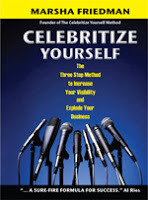 Marsha Friedman is a 20-year public relations veteran and the CEO of EMSI Public Relations (www.emsincorporated.com), a national firm that provides PR strategy and publicity services to corporations, entertainers, authors and professional firms. She hosts a national radio talk show, The Family Round Table, and is the author of "Celebritize Yourself".
Marsha Friedman is a 20-year public relations veteran and the CEO of EMSI Public Relations (www.emsincorporated.com), a national firm that provides PR strategy and publicity services to corporations, entertainers, authors and professional firms. She hosts a national radio talk show, The Family Round Table, and is the author of "Celebritize Yourself". -------- Tony Eldridge is the author of The Samson Effect , an action/adventure novel that Clive Cussler calls a "first rate thriller brimming with intrigue and adventure." He is also the author of the Twitter marketing book, Conducting Effective Twitter Contests .








Published on May 10, 2011 04:00
May 9, 2011
The Writer's A-Z Challenge by L. Diane Wolfe
 Last month, L. Diane Wolfe issued her A-Z writer's challenge. That's 26 daily challenges designed to broaden the writer's horizons and leave them with ideas to sharpen their skills. Diane was gracious enough to allow me to repost the link to her challenge.
Last month, L. Diane Wolfe issued her A-Z writer's challenge. That's 26 daily challenges designed to broaden the writer's horizons and leave them with ideas to sharpen their skills. Diane was gracious enough to allow me to repost the link to her challenge. This was one of my favorite series. If you missed it, then check out the links below. It's a great exercise to go through. For each challenge, Diane explains the importance of the challenge to the writer and then gives her advice on how to make the most of it. My thanks to Diane for the series and for allowing me to post the links here.
The Writer's A-Z Challenge
A: Articles
B: Bookmarks
C: Calls
D: Daily Goals
E: Entrepreneur
F: Festivals
G: Google Alerts
H: Helping Others
I: Indie Bound
J: The Journey
K: Keywords
L: Libraries
M: Media Pitches
N: Newsletters
O: Organizing
P: People Skills
Q: Quotes
R: Review Copies
S: Speaking and Spunky
T: Target Audience
U: Utilizing Resources
V: Virtual Tours
W: Writing
X: Xtra Mile
Y: You Tube
Z: Zero
Again, my thanks to Diane for letting me share her challenge with you today. Make sure you check out her Circle of Friends series...
And her "Overcoming Obstacles with SPUNK! The Keys to Leadership & Goal-Setting"
-------- Tony Eldridge is the author of The Samson Effect , an action/adventure novel that Clive Cussler calls a "first rate thriller brimming with intrigue and adventure." He is also the author of the Twitter marketing book, Conducting Effective Twitter Contests .








Published on May 09, 2011 04:00
May 7, 2011
Resource Of The Week: YouTube's Creator's Corner
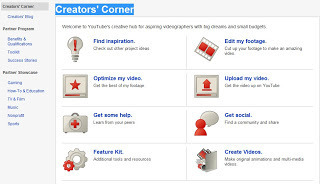 It's no secret that video on the net is becoming more and more mainstream. Perhaps you wished that you could create and post video on your site. If so, this week's resource of the week is for you. YouTube's Creator's Corner offers you tools and instructions to help you do these things:
It's no secret that video on the net is becoming more and more mainstream. Perhaps you wished that you could create and post video on your site. If so, this week's resource of the week is for you. YouTube's Creator's Corner offers you tools and instructions to help you do these things:Find Inspiration
Optimize Your Video
Edit Your Video
Upload Your Video
It also helps you with resources to create videos, share it with others and it puts you in touch with a community of peers to help answer your technical and video creation questions. It even links to the official YouTube blog to keep you up to date with all the latest video making news and technology.
Regardless of your video technical skills, I'd recommend checking out YouTube's Creator's Corner. Chances are good that you'll find something useful for your next video project.
Last 4 Resources Of The Week
Wikimedia Commons
Twitter Bookmarklet III
Kontactr
Open Clip Art Library
-------- Tony Eldridge is the author of The Samson Effect , an action/adventure novel that Clive Cussler calls a "first rate thriller brimming with intrigue and adventure." He is also the author of the Twitter marketing book, Conducting Effective Twitter Contests .








Published on May 07, 2011 04:00
May 6, 2011
Book Marketing Strategies And Tips Around The Net: May 6th
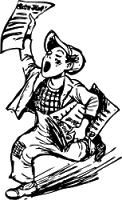 It's Friday and that means it's time to take a trip around the net to look at some book marketing posts that have caught my eye. So grab your favorite beverage and let's get going...
It's Friday and that means it's time to take a trip around the net to look at some book marketing posts that have caught my eye. So grab your favorite beverage and let's get going...1. The Dos and Don'ts of Distribution Part 3, ebooks and audio books- Penny Sansevieri discusses ebook and audio book distribution with Jeffrey Kafer, David Niall Wilson, and Brian Felsen.
2. Are You Trading Convenience for Viewers on Facebook?- MaAnna Stephenson discusses the dangers of auto posting to Facebook without engaging your audience.
3. How My Novel That Takes Place in 1970 Threw Me Into the World of Social Media- Phyllis Zimbler Miller tells you how her novel launched a social media powerhouse.
4. How you can sell e-books to mobile Twitter users-
5. Square-Serif Fonts Pack a Typographic Punch- Joel Friedlander gives you a lesson on fonts and points you to where you can download some today.
6. Ebook Authors: 17 Great Information Sources- James Moushon gives you his top resource list for e-book authors.
7. Is your book worth tweeting about?- Steven Lewis gives a novel idea on how people can buy your book for the cost off a tweet.
8. How to create SEO-friendly headlines & book titles- Roger C. Parker invites Susan Daffron to share her experience with book title SEO.
9. Webtips for authors and self-publishers- Sue Collier recommends these websites for authors.
10. Ebook or Print Book? Why Do You Have to Choose?- Joanna Penn gives three reasons why you'll want to consider publishing a print version along with your e-book.
11. Motivational board: A visual kick in the pants- The Duolit team gives you some motivational ideas by giving you a peek at what motivates them and why.
12. Why I Finally Bought a Kindle – And You Should Too- Dana Lynn Smith gives you the skinny on why you need a Kindle.
13. Simple Trick to Writing Great Guest Posts- Chris Antoni discusses how to get the most from guest blogging.
14. Use FBA calculator to forecast your Amazon revenue- Steve Weber shares a tool to help you calculate your "Fulfilled By Amazon" costs.
15. Free Review Services for Authors- Carolyn Howard-Johnson introduces you to a free service, The Review Depot, via Manic Readers.
16. Social Media Tips from Book Marketing Experts: Twitter in Just 15 Minutes Per Day- Shelley Hitz shares some Twitter tips from a lot of social media marketing experts.
17. 8 Simple Steps To Self-Publishing- Shelley Hitz is featured on Publetariat, discussing the pah to self publishing.
18. A Journalist's Approach to Blogging- Darren Rowse invites Michele Hollow to discuss blogging like a journalist.
19. How To Find Your Writing Voice- Daniel Scocco invites Lydia Athanasopoulou to explain how you can find your writing voice with easy to follow tips.
20. Twelve Big Blog Booboos: Or How to Make Your Blogging Efforts a Big Waste of Time- BookBuzzr invites Carolyn Howard-Johnson to share mistakes that many bloggers make.
That's it for this trip around the net. I have some exciting announcement coming out next week, so stay tuned!
-------- Tony Eldridge is the author of The Samson Effect , an action/adventure novel that Clive Cussler calls a "first rate thriller brimming with intrigue and adventure." He is also the author of the Twitter marketing book, Conducting Effective Twitter Contests .








Published on May 06, 2011 09:06
May 5, 2011
8 Tips To Make Your E-mail Blast Book Announcement More Effective by Sandra Beckwith
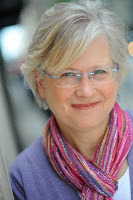 My guest today is a sponsor of my recent Twitter contests and the expert of Building Book Buzz, Sandra Beckwith. Sandra will be tapping into her experience to give us advice on how to use e-mails to effectively announce our books. She is one of the go-to experts I use when I want to know anything related to sending out author publicity material.
My guest today is a sponsor of my recent Twitter contests and the expert of Building Book Buzz, Sandra Beckwith. Sandra will be tapping into her experience to give us advice on how to use e-mails to effectively announce our books. She is one of the go-to experts I use when I want to know anything related to sending out author publicity material.Before we get to her post, I have an exciting announcement. Marketing Tips For Authors has been named as a Top Ten Blog For Authors by the Self Publishing Coach, Shelley Hitz's. I'm honored for the recognition. Check out the cool badge on my left sidebar commemorating this honor.
Also, check out the feature that Roger C. Parker did on me and my Twitter contests on his blog today, Twitter Contests can attract 20 to 25% more targeted followers,and the guest post that Dana Lynn Smith did with me on The Most Crucial Step To Effective Book Marketing.
Now, on to Sandra's post...
8 Tips To Make Your E-mail Blast Book Announcement More Effective
By Sandra Beckwith
I am generally not a negative person. Really, I'm not! But I've received so many narcissistic book announcement e-mail messages recently that I find it hard to approach this topic with a positive attitude. I keep reading these messages, hoping to find one I can use as a good example, but the "rejects" far outnumber those that inspire.
I received one this week that asked me to help the author achieve Amazon best-seller status. I know these campaigns are popular but because I know how they're put together, I now look askance at anyone who subsequently claims "best-seller status" for their book. I assume – right or wrong – that the author was just a really good nag who knew lots and lots of people who didn't mind spending money on a specific day for a book they didn't necessarily want. I suspect that the book editors receiving proposals from authors making these claims are just as cynical as I am at this point.
Another recent announcement was almost 2,000 words long – and used only 72 of those words to describe the book. 2,000 words is considered a long magazine article, not an e-mail message.
I've received some that didn't provide the book's title, others that didn't offer a link to an online purchase site, and one that used just two sentences to announce the book's publication and offer a purchase link.
You get only one chance to announce your book via e-mail. You don't want to alienate, confuse, or annoy people with that precious opportunity. So what's the right way to approach this process? Here are a few tips designed to generate a positive response – book sales! – from your list:
Remember that the quality of your announcement reflects the quality of your book. I received one that looked like a ransom note, with multiple fonts and sizes. I know this wasn't what the author intended, but, well, that's what it looked like. If your announcement isn't well-written, looks odd, has typos, or is generally inarticulate, I'll assume that's what I'll find in the book, too.
Use the descriptive text from your back book cover. Why reinvent the wheel? Your back cover probably contains everything we need to know about why your book will interest us. You might need to tweak it to make it more personal or informal, but it should have most of the information you need to describe your book in a compelling way.
Focus on me, not you. Don't use this valuable marketing space to tell me how thrilled you are to finally become an author or to detail how or why you decided to finally tell your story. Tell me what your book will do for me. Will it educate, inform, entertain, enlighten? What's in it for me? How will your book improve my world, help me improve someone else's world, or help me forget about my world?
Forget the "help me make my book an Amazon best-seller" plea. Unless we are close personal friends, I don't care if your book is a best-seller. I know that sounds harsh, but I have bigger things to worry about in life – and not enough time to read the books I've bought already. All I want to know is whether I'll like or need your book or, just as importantly, whether I know someone else who would like it.
Don't come on too strong. Remember that you are, essentially, asking your list to do you a favor and buy the book. Some of us will buy it whether we want it or not just because we want to support you and some of us will make the purchase because we truly are interested in the topic. Don't make us feel guilty if it's not in our budget or if it's just not a good fit. And don't follow up with messages asking if we've bought it yet. (Yes, I know somebody who does that.)
Provide a purchase link. I am always surprised at how many messages don't have this. Don't force me to search on Google or Amazon to buy your book – make it easy for me.
Ask me to share your news with my networks. If I know people who will want to know about your book, I'll help spread the word. But sometimes I need to be reminded. A simple "I'd love it if you'd share this message with your friends who might be interested," is enough of a nudge for most of us.
Show it to a friend or colleague before you send it. Ask for feedback on tone, content, and length. Have you overlooked anything? Would it make that person want to buy the book or share the information with others? I've been writing for publication or marketing purposes my entire adult life and still run things past others for feedback.
I hope these tips are helpful. I truly want your book to succeed. You've put so much time, effort, and heart into it – let's make sure that you give it the best possible introduction possible!
--------
Former publicist Sandra Beckwith helps authors learn how to be their own book publicists. Learn more and subscribe to her free Build Book Buzz e-zine at www.buildbookbuzz.com.
Related Posts
5 Tips: Writing A Book Announcement That Will Get Read By The Press: Sandra Beckwith
Media Kits: The Ultimate Author Publicity Tool By Angela Wilson
20 Tips For Performing Best Selling Interviews by Kat Smith
-------- Tony Eldridge is the author of The Samson Effect , an action/adventure novel that Clive Cussler calls a "first rate thriller brimming with intrigue and adventure." He is also the author of the Twitter marketing book, Conducting Effective Twitter Contests .








Published on May 05, 2011 04:00
May 4, 2011
3 Book Marketing Surprises No Author Wants To Experience
 We all love it when a plan comes together, especially when it's our book marketing plan. But even the best laid plans often fall short of our expectations. Unfortunately, that's the reality of it. And when our book marketing plans don't work out they way we want them to, we have the choice of giving up or getting back on the horse to try again.
We all love it when a plan comes together, especially when it's our book marketing plan. But even the best laid plans often fall short of our expectations. Unfortunately, that's the reality of it. And when our book marketing plans don't work out they way we want them to, we have the choice of giving up or getting back on the horse to try again. In today's post, I want to share 3 surprises that you might experience when you execute your marketing plan; not the good surprises, but the ones we dread. Having these in mind now will make dealing with them much easier than if they catch us off-guard.
1. Garner Negative Reactions- Rarely do we launch a marketing plan with the anticipation of receiving negative reactions from our activities. But from time-to-time, that may happen. Sometimes, people will read what we do and, for whatever reasons, it will push their buttons.
Perhaps, we made an allusion to something political or religious that we assumed everyone agreed with. Maybe we asserted a value proposition that someone does not adhere to. And yes, some people can even take offense that we are "selling" when they feel that the medium is not conducive to sales communications.
Many times, those who have the negative reactions are right. Our marketing communications is unintentionally offensive, but offensive none-the-less. Maybe we launched a marketing plan in a venue, like a member forum for example, that is traditionally free from marketing messages.
Other times, it's just a poor soul who got up on the wrong side of the bed that morning. Something got under their skin that would never bother the vast majority of people. Yet, it still garners harsh and vocal criticism, which often catches us off guard.
We can minimize the fallout from this surprise by following these tips:
* Take time to think before we act. Often, we just need to step back and carefully go through our message before we launch it.
* Look for value statements. While I believe that value statements (religious, political, ethical, etc...) do have a place in our marketing messages, we need to realize that those statements may offend some who come across them. Some professional decide never to use anything that could be considered controversial, but if you do, be prepared that it could create resistance.
* Make sure we perform due-diligence to be certain that our marketing message is appropriate to the medium we choose. A middle school book fair might not be the best location to rent a booth to sign our best selling erotica.
* Be quick to acknowledge and apologize for any offense. Even if someone is just being a pain in the behind, it's often easier to let them know that it wasn't our intentions to offend anyone and move on. Taking on someone who is hell-bent on paying us a piece of their mind is rarely productive.
2. Using Inaccurate Copy- There are few things that will make your gut sink more than waking up to see your live marketing message with inaccurate or missing information. Perhaps you see glaring editing errors or when you click a link that's supposed to go to your book, it goes to the dreaded 404 error.
Fortunately, the fixes for this surprise are fairly straight forward:
* Read, revise, read, revise, read and revise some more. Just like your book, you'll want to put in the time to edit your marketing message.
* Borrow a second set of eyes. Again, just like your book, having someone else proof your marketing message will increase the chances of a clean copy.
* Always, always, always check your hyperlinks. All it takes is one character in the wrong place to send you to the 404 page.
3. Missing A Deadline- It's not fun to get that voice mail or email from someone who is asking, "Where is your marketing piece? It was supposed to run this morning." And if you have joint venture partners who are counting on you, you can put others in a bind for missing your deadline.
Often, a missed deadline is not easy to reschedule; and if you can reschedule, it often cost more money. I admit, I have missed my share of deadlines, but here's what I've done to minimize this surprise:
* Google Calendar (or your favorite planner/calendar) is a must. I have mine scheduled to send me reminders at various times, depending on the event. But the only thing that will make this work for you is remembering to schedule the events and tasks to begin with.
* Sync with your smartphone. For your most important appointments, such as your marketing schedule, syncing with your smartphone means that you'll minimize the chances of missing the scheduled event.
* Invite others to your event. In many electronic calendars, you can invite "attendees" to the events you schedule. By inviting others to be part of the scheduled event, you'll have another set of eyes on the deadline.
Unfortunately, there are a lot more than three dreaded surprises that can jump out at you when you execute your book marketing plan. However, these are three of the most common, and three that you can minimize with a little planning on your part.
Related Posts
7 Strategies For Authors On Coping With Information Overload
Technology For Authors Keeps Getting Better
Productivity Tip: Manage All Your E-Mail Under One Roof
Productivity Tip: Scheduling Busy Work
Clone Yourself: Marketing Tips That Help You Be In Two Places At The Same Time
-------- Tony Eldridge is the author of The Samson Effect , an action/adventure novel that Clive Cussler calls a "first rate thriller brimming with intrigue and adventure." He is also the author of the Twitter marketing book, Conducting Effective Twitter Contests .








Published on May 04, 2011 04:00
May 3, 2011
Start Selling Yourself by Larry Brauner
 One of the things I love about this blog is that it allows me to introduce authors to great marketing experts. Today is one of those days. Larry Brauner is one of those experts full of tips, experiences and ideas who has his finger on the pulse of effective networking and marketing. Larry is my guest today and he will talk about the importance of an author selling themselves in order to be successful.
One of the things I love about this blog is that it allows me to introduce authors to great marketing experts. Today is one of those days. Larry Brauner is one of those experts full of tips, experiences and ideas who has his finger on the pulse of effective networking and marketing. Larry is my guest today and he will talk about the importance of an author selling themselves in order to be successful. Before we get to Larry's post, I have two quick, exciting in-house announcements:
1. We have a winner for our Amazing Twitter book marketing contest that ended on Sunday. Please join me in congratulating Mindi Johnson-Eluwole! Mindi is a world traveler who has written a new book coming out soon. You can read more about Mindi on her blog, Travel: The Well-Known Secret.
2. This blog has been added to AllTop.com in their Publishing and Books categories. AllTop aggregates blogs and sites into topics so you can easily stay on top of what's going on. I'm honored to be listed as a source on their site.
Now, on to Larry's post...
Start Selling Yourself
by Larry Brauner
I'm accustomed to turning down offers to write guest blog posts because of time considerations. That I accepted Tony Eldridge's offer is due to his credibility and his authority. I judged that Tony's strong presence in the marketing world would certainly aid me in building my own presence.
Have you noticed that some authors are able to sell very substantial quantities of books within short periods of time? Why is this so?
It's because they've already sold themselves. They've spent years selling themselves and building strong reputations and effective communication channels. As a result, when their books are set to come out, a few press releases and the ensuing media coverage will be enough to have their fans -- and even their critics – itching to get their hands on their latest works.
These authors have invested enormous time, energy and money to sell themselves as individuals and establish a presence. Happily though, their investment and sacrifice will pay them back handsomely for years to come. They'll sell books -- or whatever they desire -- with relatively little effort because, like business consultant Harvey Mackay would say, "They dug their wells before they were thirsty."
Even if you find that you're already "thirsty," you still need to prepare for the future. It won't work particularly well for you to run from one marketing difficulty to the next for the rest of your writing career. You need to start building now the social equity that a presence can offer. You can build it online or off – preferably both -- but start building it today.
You do need to sell your book, but you also need to begin selling yourself. Deal with your marketing problems as they arise but always devote a share of your daily time to developing a more permanent solution. Of course, you'll need someone to show you the way, and you won't find a better guide than Tony Eldridge.
--------
 Larry Brauner is Social Media Director at Gevril Group, a leading watch distributor based in the New York Area. He recently joined a company team on a nine-day marketing trip to the Watch and Jewelry Fair in Basel, Switzerland. Larry also consults privately, writes about business networking and heads the Small Business Network. You can reach Larry through his blog, Online Social Networking.
Larry Brauner is Social Media Director at Gevril Group, a leading watch distributor based in the New York Area. He recently joined a company team on a nine-day marketing trip to the Watch and Jewelry Fair in Basel, Switzerland. Larry also consults privately, writes about business networking and heads the Small Business Network. You can reach Larry through his blog, Online Social Networking.Related Posts
8 Tips on Starting Your Own Grass-Roots Campaign For Your Book
It's All About Networking: 8 Tips On Effective Online Mingling
How To Get Introduced To That Perfect Contact
How To "Get" When Marketing In The 2.0 World
-------- Tony Eldridge is the author of The Samson Effect , an action/adventure novel that Clive Cussler calls a "first rate thriller brimming with intrigue and adventure." He is also the author of the Twitter marketing book, Conducting Effective Twitter Contests .








Published on May 03, 2011 04:00























